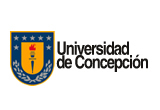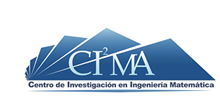News
To guide the adoption of better sanitary measures
-
Research team contributes to guide timely decision-making by the authorities to face the pandemic
Since the beginning of the pandemic, a concern shared by the entire community has been to anticipate how infections will evolve, seeking to predict the severity of the situation and take preventive measures. The goal has also been to configure these scenarios according not only to the national panorama, but to observe what happens in a specific territory, a city or a region, according to its specific characteristics.
Following that purpose, in March 2020 the Universidad de Concepción, UdeC, began an institutional project that seeks to contribute to decision-making by the authorities, and at the same time, inform citizens about the health emergency. Thus, the Covid-19 UdeC Projections Team, led by academic Dr. Guillermo Cabrera Vives, was born in the Data Science Unit of the Faculty of Engineering UdeC, who combine computer skills, mathematics and statistics to extract significant information from the data, generating from them useful information and projections on the variation of COVID19 cases in the Biobío, Ñuble and Metropolitan regions, together with values at the national level.
.jpg) “From the Rectory, we were commissioned to form a team of experts to collaborate in dealing with the pandemic in this way, so the project is financed with a seed contribution of VRID's own funds, aimed to COVID related initiatives, we consider that are a relevant contribution of our University to the community in the midst of a pandemic”, Vice-Rector for Research and Development, Dr. Andrea Rodríguez Tastets, explained
“From the Rectory, we were commissioned to form a team of experts to collaborate in dealing with the pandemic in this way, so the project is financed with a seed contribution of VRID's own funds, aimed to COVID related initiatives, we consider that are a relevant contribution of our University to the community in the midst of a pandemic”, Vice-Rector for Research and Development, Dr. Andrea Rodríguez Tastets, explained
The researchers present their results weekly and they are published by Noticias UdeC. There are already more than 50 reports that, based on data from two to three previous weeks, offer a vision of the expected behavior of future infections. In any case, the team warns that these are mathematical models that assume certain assumptions, so the resulting projections cannot be interpreted as definitive.
“We were contacted from the Armed Forces because they saw the severity of the pandemic and had the need to understand, from the data, how to better address it”, says Dr. Cabrera, who works together with Dr. Julio Aracena Lucero, from the Faculty of Physical and Mathematical Sciences, postdoctoral researcher Dr. Víctor Osores Escalona and undergraduate students Lucía Gebauer Werner (Astronomy) and Francisco Tassara Hernández (Mathematical Civil Engineering).
.jpg) Dr. Aracena, a member of the Center for Research in Mathematical Engineering, CI²MA, and a specialist in Discrete Mathematics, explains: “Guillermo and I coordinate the weekly reports and the generation of new epidemiological models, which allow us to project what will happen in terms of virus spread”. At the same time, they participate in meetings with local authorities in the Biobío and Ñuble regions, and in the COVID-19 Social Panel, where the behavior of the pandemic is analyzed and projected. The information is also available to the media for its social communication.
Dr. Aracena, a member of the Center for Research in Mathematical Engineering, CI²MA, and a specialist in Discrete Mathematics, explains: “Guillermo and I coordinate the weekly reports and the generation of new epidemiological models, which allow us to project what will happen in terms of virus spread”. At the same time, they participate in meetings with local authorities in the Biobío and Ñuble regions, and in the COVID-19 Social Panel, where the behavior of the pandemic is analyzed and projected. The information is also available to the media for its social communication.
Collaboration to shape the future
The conjunction of specialists in Data Science, Mathematics and other disciplines for data processing is one of the achievements of this initiative “I would like to highlight the interdisciplinary team that was conformed to respond to a key need, such as information analysis, applying specific methodologies, which has allowed authorities to make better decisions”, Dean of the Faculty of Engineering, Dr. Luis Morán Tamayo emphasized. “This is the result of the high capacity of the professionals who have been working”.
Dean of the Faculty of Physical and Mathematical Sciences, Dr. Roberto Riquelme Sepúlveda, also highlighted the use of data modeling as a tool that allows showing different scenarios from the analysis of existing data. “A transdisciplinary scientific work is necessary to address the greatest number of variables. In particular, working with data about this epidemic in 'near real time' is no less a challenge and a great responsibility, since the results obtained day by day will help the authorities to make better decisions to mitigate the effects of this pandemic”.
“No doubt about it, this scientific initiative shows, once again, the importance of mathematical applications in the lives of the citizens of our country”, director of CI²MA, Dr. Rodolfo Araya Durán, says. “This work”, Araya continues, “together with other initiatives in the area of mathematical modeling related to COVID, aim to mitigate the impact of the pandemic on the lives of our compatriots. This is, without a doubt, a reason for deep satisfaction”.

